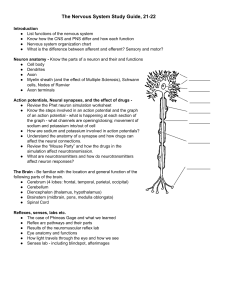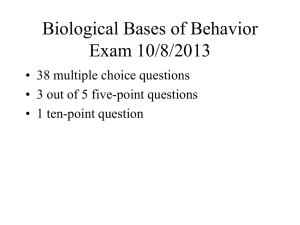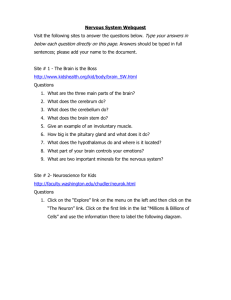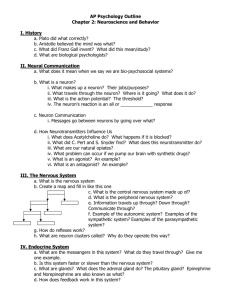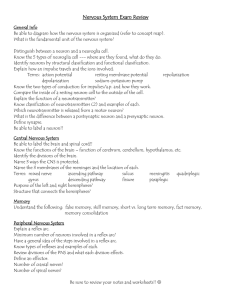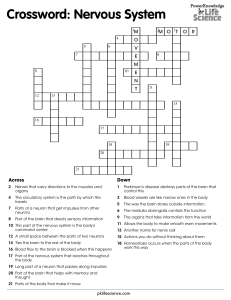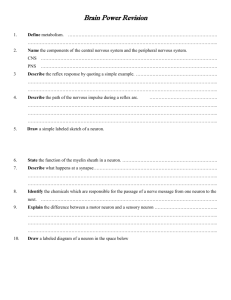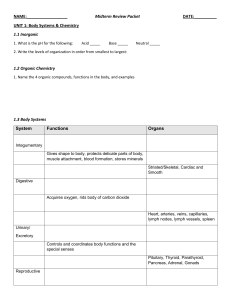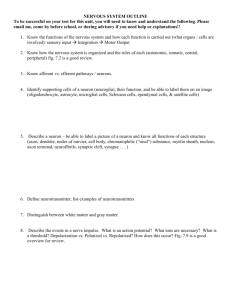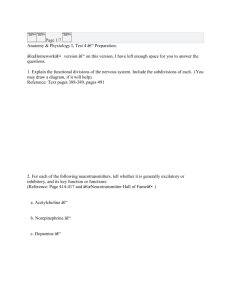Nervous
advertisement
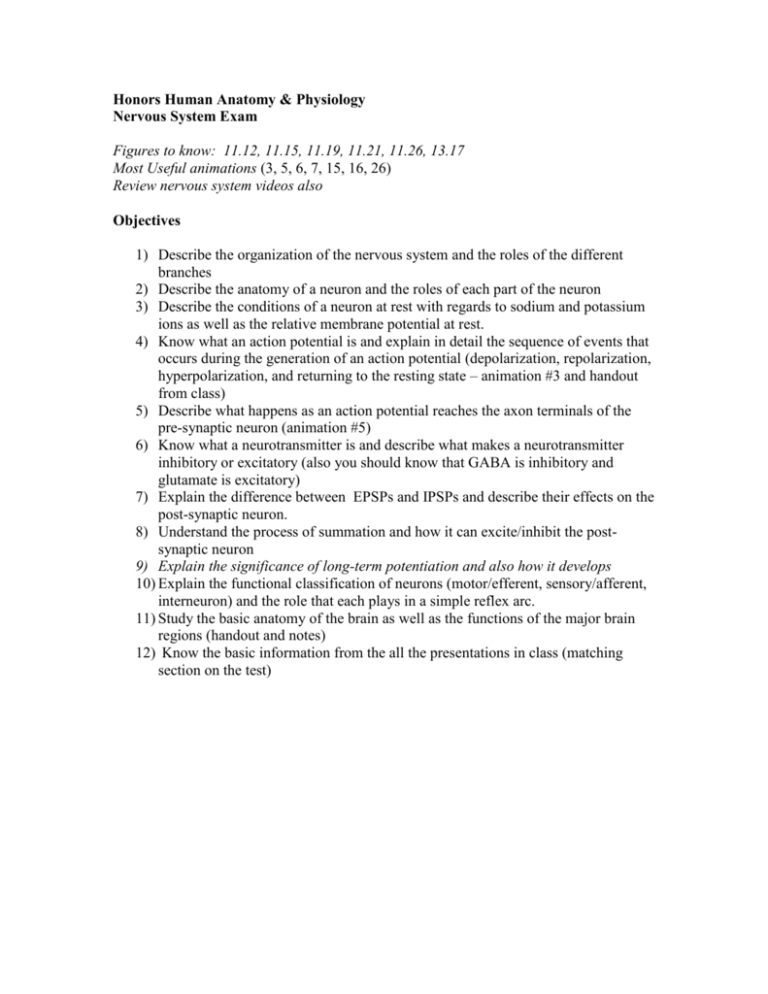
Honors Human Anatomy & Physiology Nervous System Exam Figures to know: 11.12, 11.15, 11.19, 11.21, 11.26, 13.17 Most Useful animations (3, 5, 6, 7, 15, 16, 26) Review nervous system videos also Objectives 1) Describe the organization of the nervous system and the roles of the different branches 2) Describe the anatomy of a neuron and the roles of each part of the neuron 3) Describe the conditions of a neuron at rest with regards to sodium and potassium ions as well as the relative membrane potential at rest. 4) Know what an action potential is and explain in detail the sequence of events that occurs during the generation of an action potential (depolarization, repolarization, hyperpolarization, and returning to the resting state – animation #3 and handout from class) 5) Describe what happens as an action potential reaches the axon terminals of the pre-synaptic neuron (animation #5) 6) Know what a neurotransmitter is and describe what makes a neurotransmitter inhibitory or excitatory (also you should know that GABA is inhibitory and glutamate is excitatory) 7) Explain the difference between EPSPs and IPSPs and describe their effects on the post-synaptic neuron. 8) Understand the process of summation and how it can excite/inhibit the postsynaptic neuron 9) Explain the significance of long-term potentiation and also how it develops 10) Explain the functional classification of neurons (motor/efferent, sensory/afferent, interneuron) and the role that each plays in a simple reflex arc. 11) Study the basic anatomy of the brain as well as the functions of the major brain regions (handout and notes) 12) Know the basic information from the all the presentations in class (matching section on the test)
